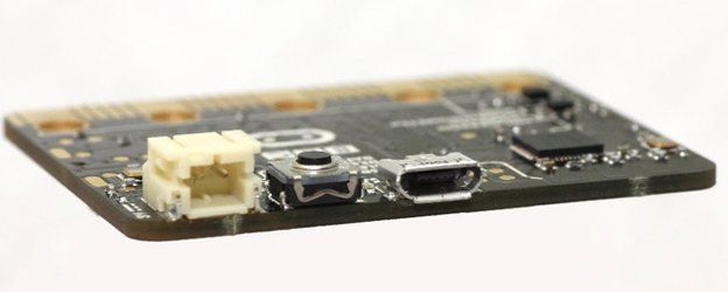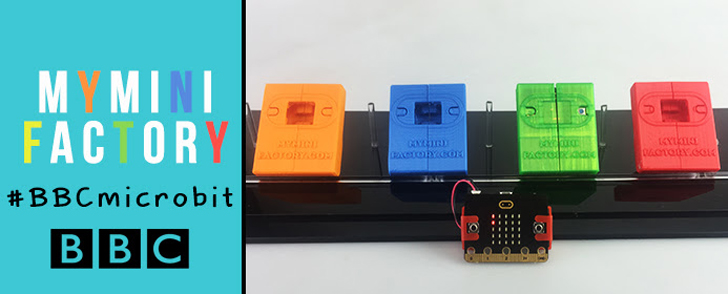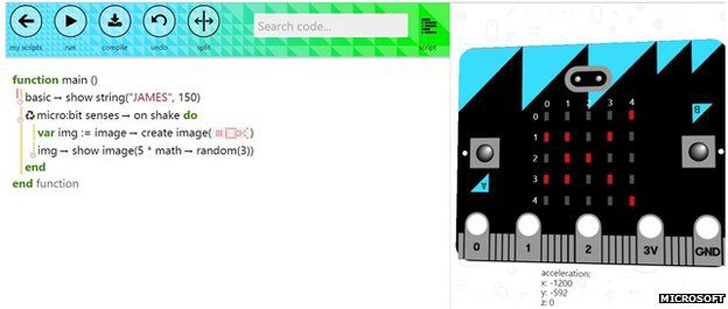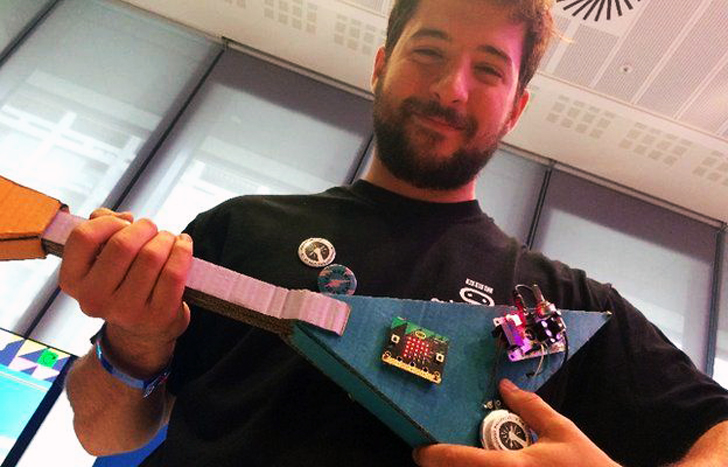The BBC has recently been working to get UK students more engaged with science and engineering, launching a new series of programming with a tech focus and, today, a small computer to teach kids how to code. Even simpler than a Raspberry Pi computer or Arduino microcontroller, the BBC micro:bit will be given away to every 11 or 12 year old child in year 7 or equivalent across the UK, with up to 1 million micro:bits donated in total. Partnering with the BBC are 29 different organizations, including the UK’s own MyMiniFactory.
The 4cm by 5cm (1.6in by 2in) BBC micro:bit features an array of 25 programmable, red LED lights, as well as two buttons, a built-in motion sensor, magnetometer for metal detection, an accelerometer, and Bluetooth chip.
Programming the micro:bit can be done via a mobile app and website that allows students to test out their code before installing it on the device. On top of that, the computer has the ability to interface with popular, low-cost electronics, such as the Raspberry Pi, Arduino, and Galileo, using a series of input-output rings.
To bring 3D printing into the micro:bit mix, MyMiniFactory has already begun publishing 3D printable designs for the computer that kids can download for free. To start, the 3D printing community has provided a number of 3D printable cases and clips for the device, but they will also be launching competitions and campaigns in the near future to encourage students to get involved with 3D printing and 3D modeling.
This isn’t the first time that BBC has launched such an ambitious initiative, as the BBC Microcomputer System was released in a similar fashion in the 80’s. Admittedly, the micro:bit is significantly more compact and more powerful at 18x faster, 70x smaller, and 617x lighter than the Microcomputer System. BBC Learning head Sinead Rocks says of the device, “The BBC micro:bit is all about young people learning to express themselves digitally. As the micro:bit is able to connect to everything from mobile phones to plant pots and Raspberry Pis, this could be for the internet-of-things what the BBC Micro was to the British gaming industry.”
In addition to MyMiniFactory, other participating companies and non-profits include ARM, which provided its mbed hardware, software development kits, and compiler services; Barclays, which is involved in product delivery and outreach; element14, taking part in manufacturing and component sourcing; Freescale, which provided the sensors and USB controllers; Lancaster University, which wrote the micro:bit’s runtime software; Microsoft, supplying web-based programming tools and teaching materials; Nordic Semiconductor, which provided the main processor and Bluetooth Smart; Samsung, which developed an Android app; ScienceScope, developing the iOS app and getting the micro:bit to schools; and Technology Will Save Us, which worked on the device’s aesthetic.
This is awesome news for kids in the UK and definitely a model to follow for other countries. Hey, US, are you listening? Give my kid a free pocket computer! I don’t have a kid yet, but my cat could sure use something to code.
Images via MyMiniFactory and BBC.







